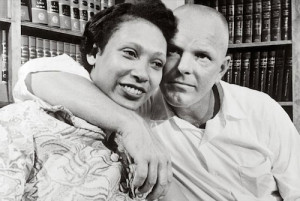St. Louis Board of Aldermen: Board Bills 62-75 (UPDATED)

There are 15 new bills to be introduced at the St. Louis Board of Aldermen today. Some further butcher the street grid, others related to development projects.
ON AGENDA FOR INTRODUCTION TODAY 6/16/17:
(Note: as of 7:30pm last night the pages with full bill language were not available). The following was updated at 7am on 6/22/17 — a few changes from the original agenda. Looks like one bill was pulled so the last on the list was moved up so all wouldn’t need to be renumbered.
- B.B.#62 – Ogilvie –An ordinance recommended by the Board of Public Service to conditionally vacate above surface, surface and sub? surface rights for travel in the western 65 feet of the 15 foot wide east/west alley in City Block 4649?A as bounded by Eitman, Sulphur, Columbia and Clifton Park Terrace/ C. B. 4700 (aka Clifton Park).
- B.B.#63 – Coatar –An ordinance recommended by the Board of Public Service to conditionally vacate travel in the southern north/south alley in City Block 483?E as bounded by Hickory, Grattan, Park and Dolman.
B.B.#64 – Martin –An ordinance recommended by the Board of Public Service to conditionally vacate travel in Primm Street from Reilly Avenue westwardly to a point in City Blocks 3126 and 3150.- B.B.#64 – Muhammad –An ordinance approving a Redevelopment Plan for 4025 Shreve Ave.
- B.B.#65 – Bosley –An ordinance recommended by the Board of Public Service to conditionally vacate travel in the 20′ wide n/s alley in City Block 2485 beginning at Carter Ave. and extending southwardly to the northern line of the 20′ wide alley in City Block 2485 as bounded by Carter, Grand, Penrose and Obear.
- B.B.#66 – Kennedy/Muhammad –An Ordinance setting out regulations regarding the use of surveillance technology by the City, requiring the submission of Surveillance Program Plans and review by the Board of Aldermen before such plans can be put into practice; and containing a severability clause and an emergency clause.
- B.B.#67 – Ogilvie – An Ordinance designating a portion of the City as a redevelopment area known as the 6300 Clayton Avenue Redevelopment Area pursuant to the Real Property Tax Increment Allocation Redevelopment Act; adopting and approving a redevelopment plan, adopting and approving a redevelopment project with respect thereto; adopting tax increment financing within the redevelopment area; establishing the 6300 Clayton Avenue Special Allocation Fund; authorizing certain actions by City officials; and containing a severability clause.
- B.B.#68 – Ogilvie –An Ordinance authorizing the execution of a redevelopment agreement between The City and Hibernia Dogtown Development, Inc.; prescribing the form and details of said agreement; authorizing other related actions in connection with such agreement; and containing a severability clause.
- B.B.#69 – Ogilvie –An Ordinance recommended by the Board of Estimate and Apportionment authorizing and directing the issuance and delivery of not to exceed $3,800,000 plus issuance costs principal amount of tax increment revenue notes (6300 Clayton Avenue Redevelopment Project) Series 20__?A/B; prescribing the form and details of such notes and the covenants and agreements made by the City to facilitate and protect the payment thereof; prescribing other matters relating thereto, and containing a severability clause.
- B.B.#70 – Conway –An Ordinance designating a portion of The City as a redevelopment area known as the Municipal Courts Building Hotel Redevelopment Area pursuant to the Real Property Tax Increment Allocation Redevelopment Act; adopting and approving a redevelopment plan, adopting and approving a redevelopment project for the portion of the redevelopment area known as RPA 1; adopting tax increment financing within RPA 1; making findings with respect thereto; establishing the Municipal Courts Building Hotel RPA 1 Special Allocation Fund; authorizing certain actions by City officials; and containing a severability clause.
- B.B.#71 – Conway –An Ordinance authorizing the execution of a redevelopment agreement between The City and MCB Hotel Owner, LLC; prescribing the form and details of said agreement; authorizing other related actions in connection with such agreement; and containing a severability clause.
- B.B.#72 – Conway –An Ordinance recommended by the Board of Estimate and Apportionment authorizing and directing the issuance and delivery of tax increment revenue notes (Municipal Courts Building Hotel Redevelopment Project) Series 20__?A/B, of The City of St. Louis, Missouri, in the principal amount of not?to? exceed $9,870,000 plus issuance costs; prescribing the form and details of such notes and the covenants and agreements made by the City to facilitate and protect the payment thereof; prescribing other matters relating thereto, and containing a severability clause.
- B.B.#73 – Davis – An ordinance authorizing the honorary street name, Justine M. Petersen Pathway. Justine M. Petersen Pathway will begin at the intersection of N. Grand and Windsor Place and run west on Windsor Place to the intersection of N. Spring Avenue and Windsor Place.
- B.B.#74 – Kennedy –An ordinance approving a blighting study and redevelopment plan for Cook Ave. & Finney Ave. Scattered Sites Redevelopment Area; and containing a severability clause.
- B.B.#75 – Vaccaro – An ordinance approving a Redevelopment Plan for 3118 Watson Road.
B.B.#76 – Muhammad –An ordinance approving a Redevelopment Plan for 4025 Shreve Ave.
The meeting begins at 10am, it can be watched online here. See list of all board bills for the 2017-2018 session.
— Steve Patterson


